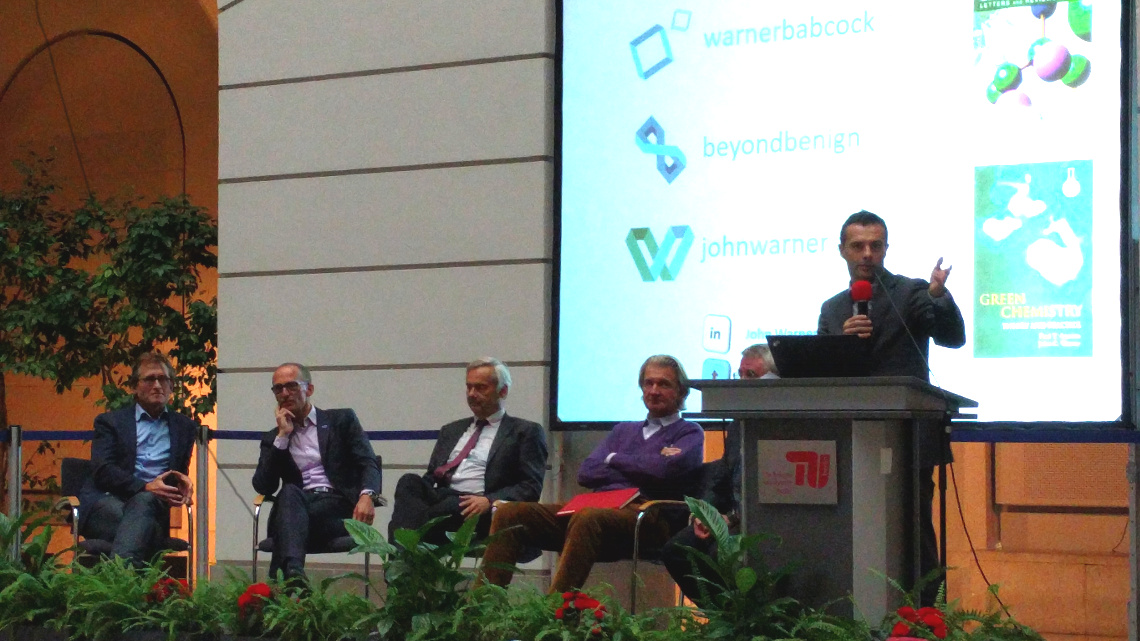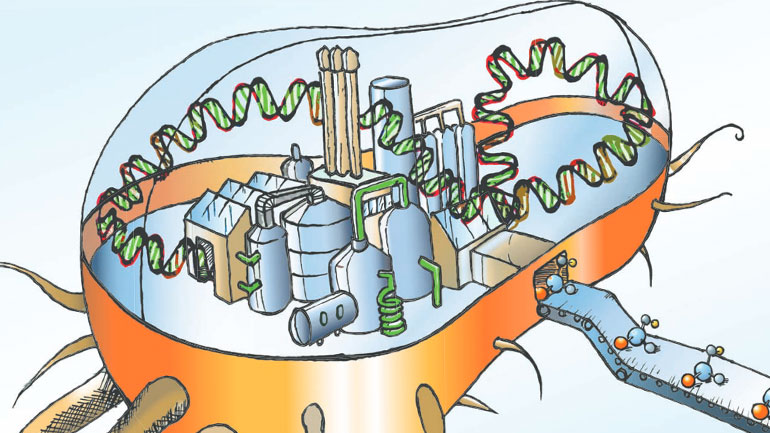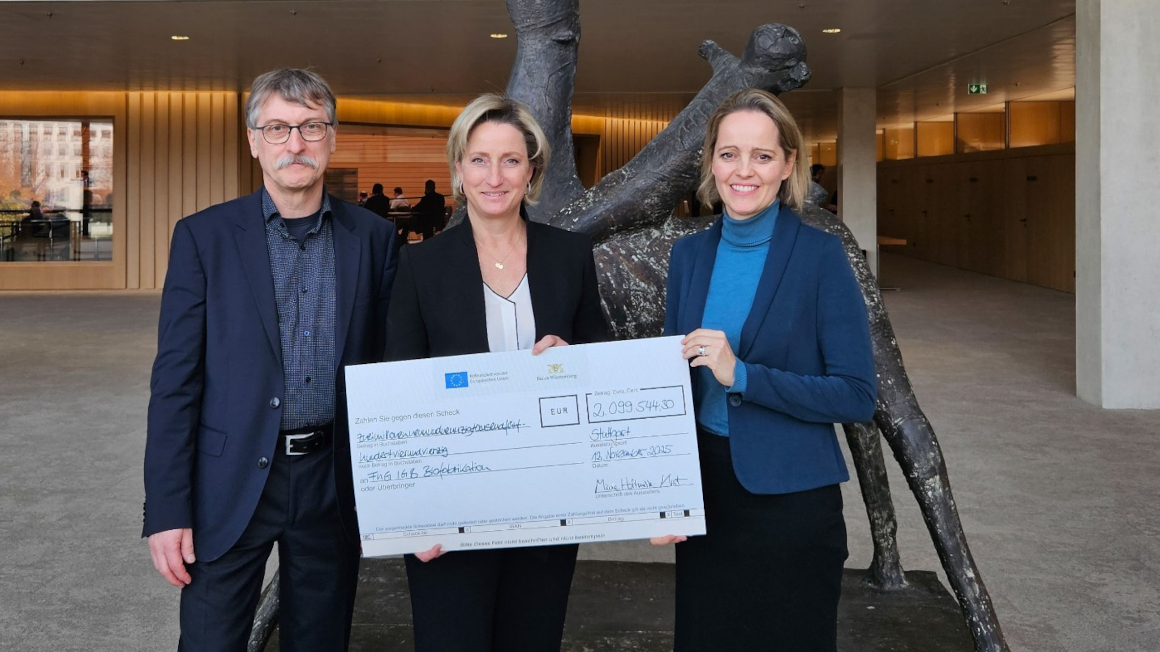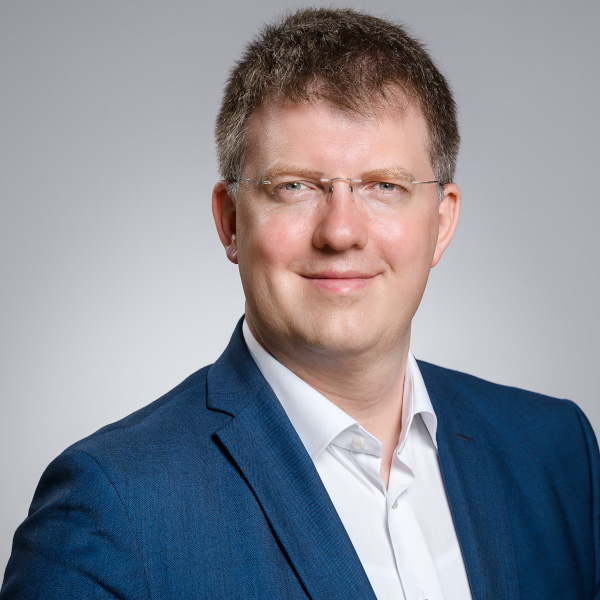TU Berlin fosters green chemistry
The Technical University Berlin set up a start-up center for innovative ideas for a more sustainable economy. The advisory board includes high-ranking members from research and industry.

Sustainability is a major issue for industry and business right now. Green chemistry is the tool for a more sustainable economy. For example, the activity of enzymes can be modified in such a way that they can be used in biotechnological plants for the fermentation of residues or the production of biobased materials. The underlying mechanism for the targeted modification of enzyme activity was developed by the enzyme researcher Frances H. Arnold and the molecular biologists George P. Smith and Sir Gregory, who have just been awarded the 2018 Nobel Prize in Chemistry.
TU Berlin is opening start-up center
In the spirit of green chemistry and a sustainable economy, the Technical University of Berlin is opening the Chemical Invention Factory - John Warner Center for start-ups in green chemistry (CIF). The CIF will provide a professional laboratory infrastructure for spin-offs in the area of green chemistry, and the university also supports them with advice from internal and external experts.
Nobel Laureates and Turing Prize winners on advisory board
As part of the celebrations to mark the 50th anniversary of the sustainability organization "Club of Rome", for the first time, all members of the Advisory Board of the CIF met on October 2 in the Lichthof of the Technical University of Berlin. The Advisory Board is made up of high-ranking members from science and industry, including Nobel Laureate Ben Feringa, namesake of the CIF, John Warner, Turing Prize winner Vinton Cerf and Sonja Jost, founder of DexLeChem GmbH, a spin-off of TU Berlin itself.
Berlin offers perfect conditions
At the beginning of the event, Steffen Krach, State Secretary for Science and Research of the State of Berlin, together with the President of the TU Berlin, Christian Thomsen, presented the newly elected Advisory Board members with a certificate in recognition of their membership. Krach emphasised the good timing of the organisers, as only a few days before the awarding of the clusters of excellence related to bioeconomicy, including the TU Berlin, had been announced. "We not only chose the perfect time to found the Chemical Invention Factory, but also the perfect location given the lively start-up scene in Berlin," said Krach.
Subsequently, Vice President of the "Club of Rome" Anders Wijkman and John Warner, namesake of the CIF, gave passionate lectures to about 150 participants on the urgency of a new, sustainable industry and the almost unlimited possibilities that green chemistry offers.
No more disposable products
In his lecture, Wijkman presented theses from his new book "Come on!". The book was written by Wijkman together with Ernst Ulrich von Weizsäcker, also Vice President of the Club of Rome. The core statement: Industry and business still use far too many relatively short-lived disposable products. In order to conserve resources despite a growing world population, a closed-loop economy is needed. "The UN sustainability goals are a good approach on the road to a sustainable economy. But it can only work if all goals are tackled as an overall package," says Wijkman.
New perspectives bring new solutions
In September 2017, the Federal Minister of Economics and Energy, Brigitte Zypries, State Secretary Steffen Krach and TU Berlin chemistry professor Matthias Driess, presented John Warner with a key, thereby symbolically making him the eponym of the CIF.
Ten years earlier, Warner founded the "Warner-Babcock Institute for Green Chemistry" together with Jim Babcock, which has since produced several (patented) innovations for a more sustainable economy. Warner also developed the twelve principles for more sustainable chemistry. However, education and training of students is particularly important to him: "Students are the incubators and developers of tomorrow. We have to provide them with the right techniques!" This also includes, Warner continues, encouraging students to try out new perspectives and solutions.
Using Mother Nature as a role model
During the subsequent panel discussion, Nobel Laureate Ben Feringa emphasized that nature actually offers all the prerequisites for new, sustainable solutions. The purity principle of modern chemistry is outdated, agreed Peter Schuhmacher from BASF: "In nature, all substances are present in mixtures, hardly anything exists in purity!" In view of these findings, the students now have to learn to think in new ways in order to develop tomorrow's solutions, TU President Thomsen concluded the event.
jmr


